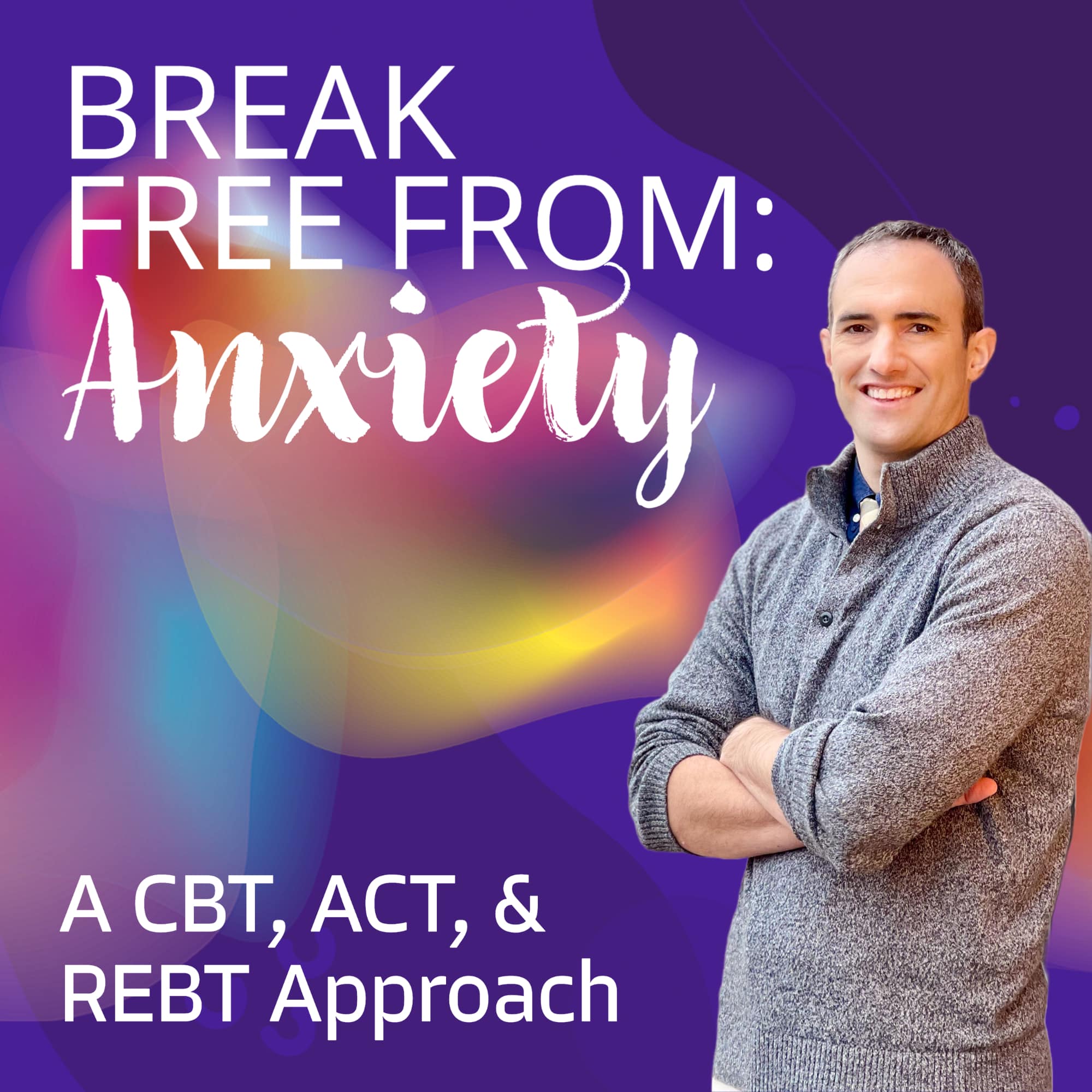Depression and sleep are deeply intertwined, with depression often disrupting sleep quality, duration, and consistency. Understanding how depression affects sleep can help you improve both your mental health and nightly rest with targeted strategies.
KEY TAKEAWAYS
-
Depression commonly causes insomnia, hypersomnia, or irregular sleep patterns, worsening overall well-being.
-
Poor sleep can exacerbate depressive symptoms, creating a vicious cycle.
-
Behavioral techniques like sleep hygiene, light exposure, and structured routines can help.
-
Therapy—particularly CBT—and medication can address both depression and sleep issues.
-
TelepsychHealth offers online psychiatric treatment and therapy for personalized care.
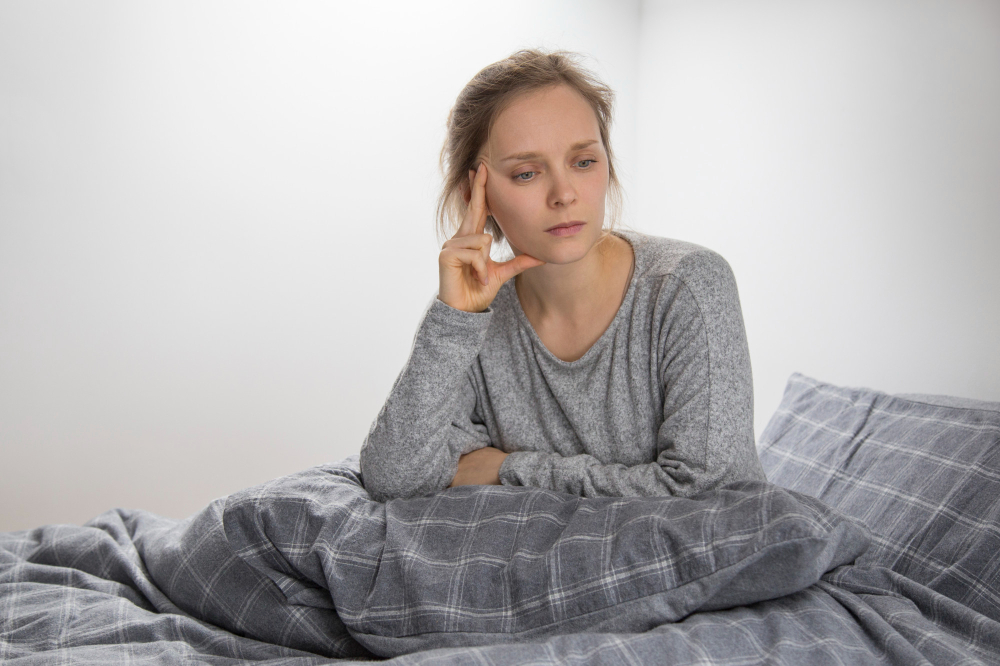
Sleep disturbances are among the most common and debilitating symptoms of Major Depressive Disorder and persistent depressive states. Whether you’re struggling to fall asleep, stay asleep, or feel rested in the morning, depression can deeply impair sleep quality, leading to fatigue, impaired cognition, and emotional dysregulation.
At TelepsychHealth, we help patients understand the bidirectional relationship between depression and sleep, assessing each individual’s sleep profile and emotional symptoms. Restoring healthy sleep patterns often plays a transformative role in managing depressive moods and improving overall functioning.
Research shows that disrupted sleep doesn’t just accompany depression—it actively worsens it. Poor sleep reduces the brain’s ability to regulate emotions, process stress, and consolidate positive memories, creating a vicious cycle that perpetuates low mood. Chronic sleep deprivation also disrupts key neurotransmitters like serotonin and dopamine, which are critical for emotional balance. At TelepsychHealth, we leverage evidence-based interventions—such as Cognitive Behavioral Therapy for Insomnia (CBT-I) and circadian rhythm regulation—to break this cycle. By targeting sleep disturbances directly, we help patients not only rest better but also rebuild the neural resilience needed for lasting mental health recovery.
How Depression Disrupts Sleep Architecture
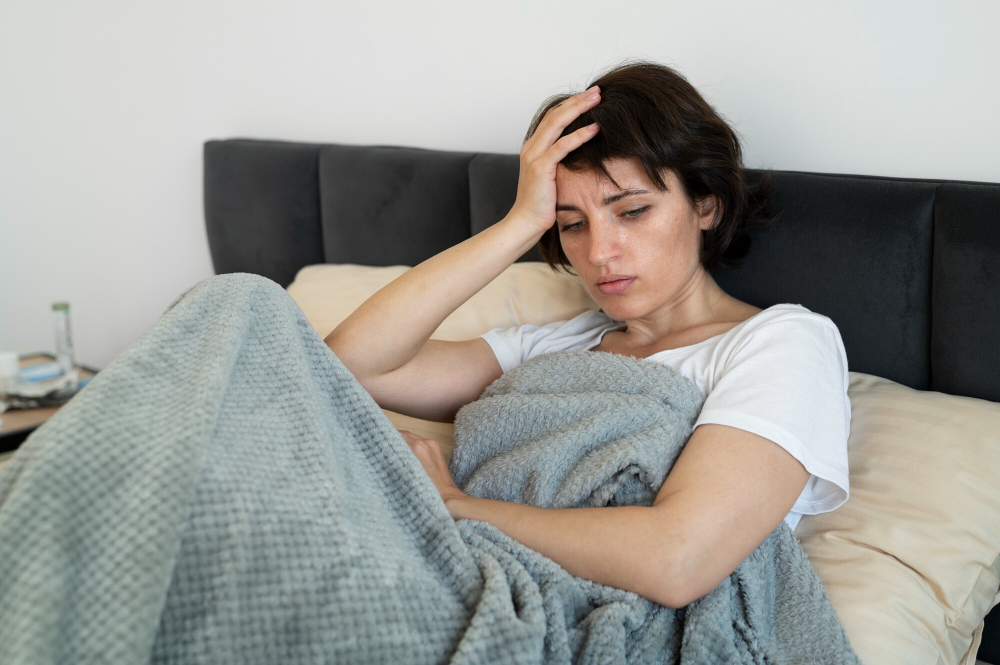
Depression commonly disrupts the natural stages of sleep—altering REM sleep, deep sleep (N3), and the balance between brainwave patterns that regulate restful rest. Individuals with depression may enter REM stage faster, experience more frequent awakenings, and spend less time in restorative slow-wave sleep. This results in unrefreshing nights even if total sleep time seems adequate.
Such disturbances impair cognitive functions like memory consolidation, emotional regulation, and executive function. As a result, daytime symptoms—such as difficulty concentrating, low energy, and heightened emotional sensitivity—intensify, feeding into a depressive cycle.
Insomnia, Hypersomnia, and Irregular Sleep Patterns
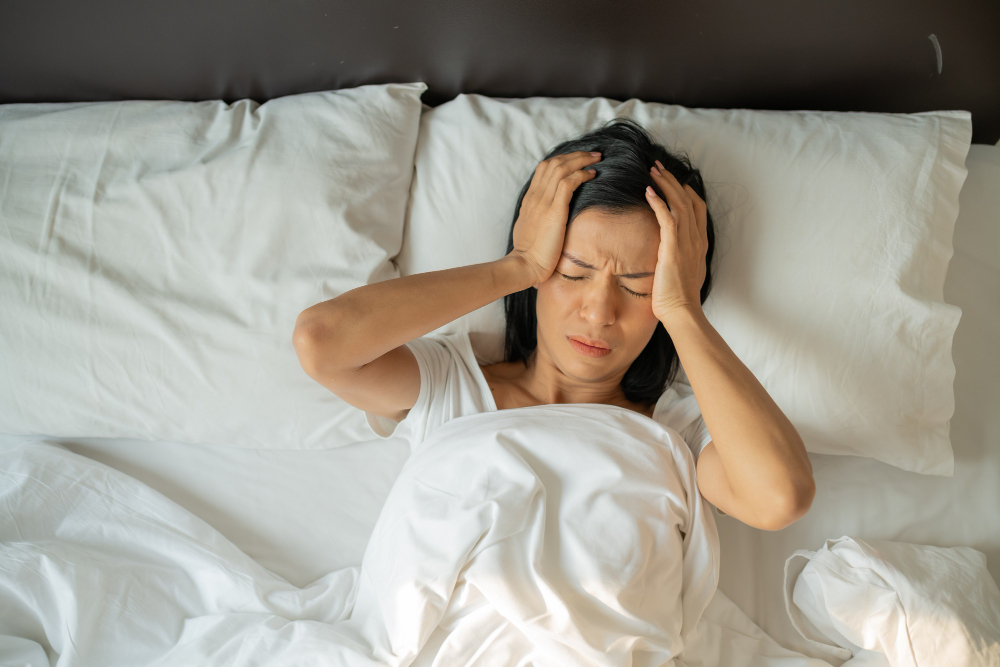
Depression doesn’t affect everyone the same way. Some experience insomnia—the inability to fall or stay asleep; others experience hypersomnia, sleeping excessively but still feeling fatigued. Irregular sleep-wake cycles are also common, with inconsistent bedtimes, midday naps, or early-morning awakenings.
These conditions complicate everyday life—triggering mood swings, decreased motivation, and social withdrawal. For practical support, we often recommend structured approaches found in our online therapy modalities or behavioral activation programs to reintroduce stability.
The Vicious Cycle: Sleep and Mood
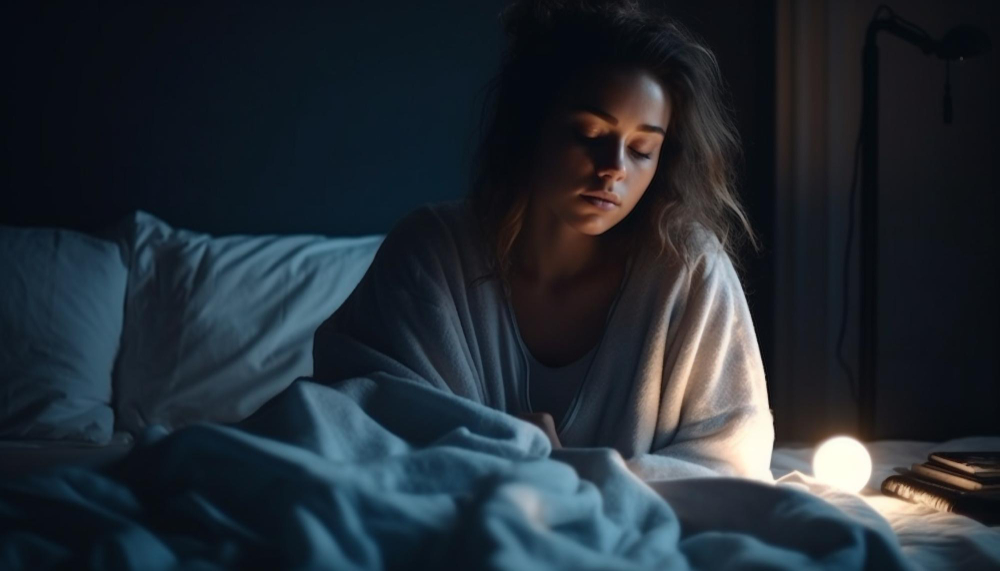
Poor sleep contributes to emotional vulnerability—irritability, anxiety, cognitive fuzziness—which heighten depressive symptoms. In turn, depression worsens sleep quality, creating a self-reinforcing loop. Breaking this cycle often requires combined mental health and behavioral therapy interventions.
At TelepsychHealth, we integrate Cognitive Behavioral Therapy for Insomnia (CBT-I) with evidence-based treatment for depression, addressing both causes and consequences of disrupted sleep. Our team also evaluates whether medication might help restore sleep patterns effectively alongside therapy.
Sleep Hygiene: Behavioral Tools to Improve Rest
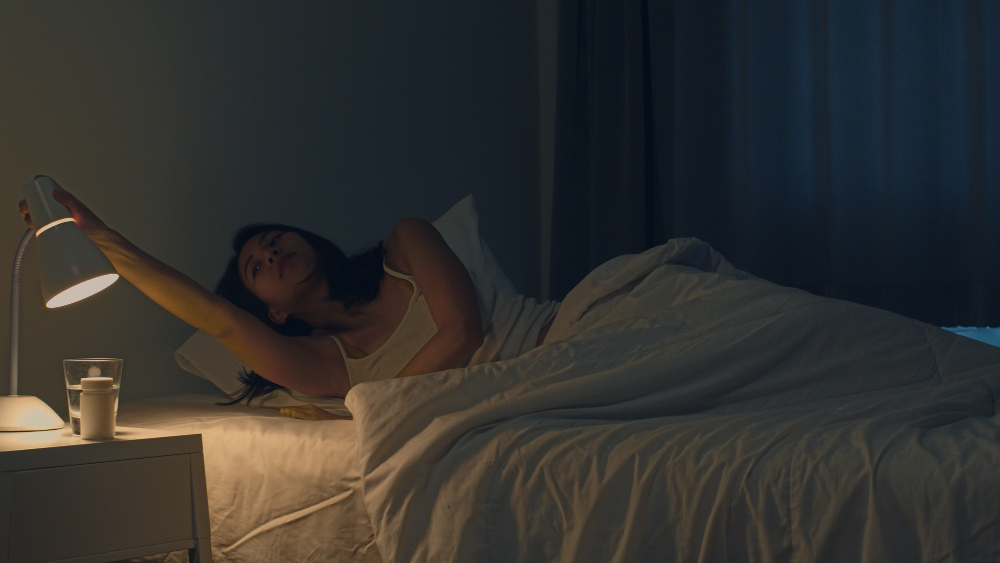
Light exposure is key for regulating circadian rhythms—morning natural light boosts alertness, while limiting blue light before bed helps melatonin production. Maintaining a consistent bedtime, avoiding stimulating screens, and creating a dark, cool sleep environment support these rhythms.
Additionally, limiting caffeine and alcohol late in the day, exercising earlier rather than late at night, and minimizing naps can restore better nighttime sleep. TelepsychHealth clinicians often guide patients on implementing these changes.
When Medication Helps
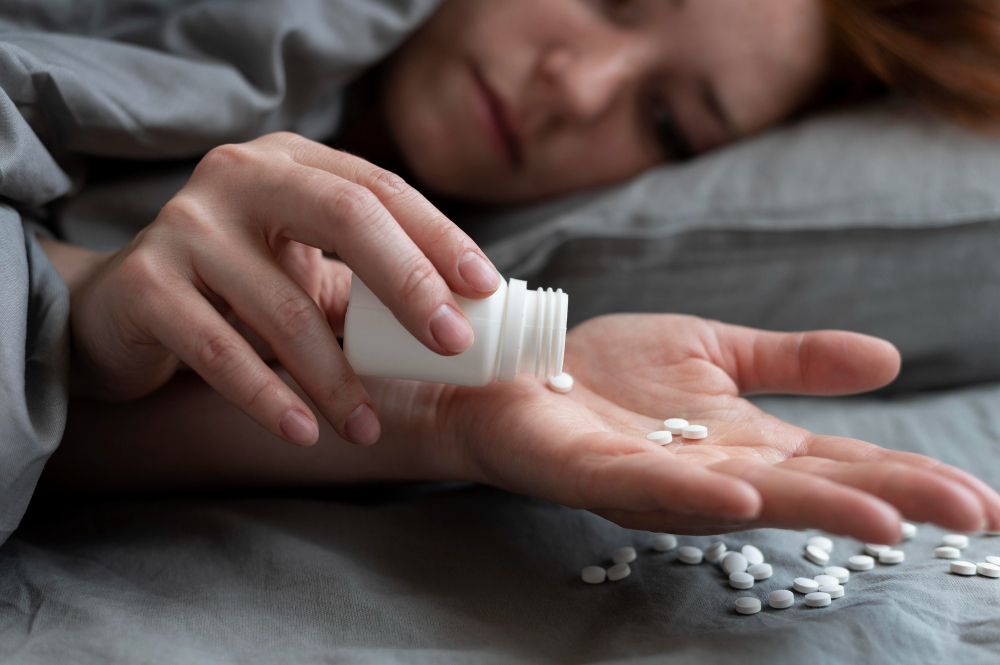
Sometimes, therapy and behavioral changes aren’t enough, and antidepressant medication may be needed. SSRIs, SNRIs, certain atypical antidepressants, or short-term sleep aids can help rebalance brain chemistry and sleep architecture.
Our team offers comprehensive medication management, ensuring that the right combination of therapeutic and pharmacological interventions is tailored to your emotional and sleep needs.
Comprehensive Telepsychiatric Approach
Integrated care is crucial. At TelepsychHealth, our online psychiatry model allows us to assess mood and sleep habits concurrently, delivering treatment plans that address both components. Treatment often starts with structured assessments followed by personalized psychotherapy and medication as needed.
Our services include follow-up sessions to track progress, manage side effects, and modify interventions—ensuring that both depressive symptoms and sleep disruptions are treated effectively.
Real-Life Recovery Stories
Many patients report significant improvements in mood once sleep patterns stabilize. One patient began by waking at 3 AM and lying awake for hours—following a depression diagnosis and sleep hygiene education, she regained consistent rest and noticed improved mood, better daytime concentration, and reduced anxiety within weeks.
This underscores the impact of addressing sleep early in the treatment process, paving the way for broader mental health gains.
These findings align with studies showing that sleep interventions can act as a modifiable lever in mental health care. For instance, meta-analyses suggest that improving sleep quality may reduce depressive symptoms by up to 50% in some populations, even in the absence of direct antidepressant treatments (Gee et al., 2022). This reinforces the need for clinicians to prioritize sleep assessments not just as a symptom, but as a potential treatment target—particularly for patients with mood disorders, where disrupted sleep often precedes relapse. By integrating sleep-focused strategies early, providers may accelerate recovery and reduce the overall burden of mental illness.
Lifestyle Factors and Sleep
Diet, physical activity, and stress management all play roles. Minimizing evening stimulants, complex carbohydrates, or heavy meals and incorporating regular movement can regulate sleep. Stress-reducing routines like evening relaxation, reading, or mindfulness also ease bedtime transitions.
TelepsychHealth providers work collaboratively with patients to integrate these behavioral modifications into care plans, optimizing outcomes.
When to Seek Professional Help
If sleep disturbances persist despite self-help methods or begin to significantly impact daily functioning, professional support can change the trajectory. Seeking help for symptoms like persistent early wakening, long-term insomnia, or hypersomnia—as they relate to depression—is a proactive step.
TelepsychHealth provides telepsychiatric evaluation and therapy options to support individuals struggling with both mood and sleep issues—accessible from home with confidentiality and convenience.
Helpful Tips for Improving Sleep During Depression
Keep a sleep diary for two weeks to track bedtime habits, mood, and rest quality. Use this as a foundation to build structured habits and share insights with a provider for personalized adjustments.
Summary
Depression has a profound effect on sleep—disrupting rhythms, shortening restorative stages, and amplifying daytime impairment. But targeted behavioral strategies, therapy, and appropriate medication can help restore healthy sleep and improve mood outcomes. “Healing begins when sleep is respected as part of mental health—not just an add‑on,” says Dr. Bruce Bassi, M.D., a psychiatrist with TelepsychHealth.





